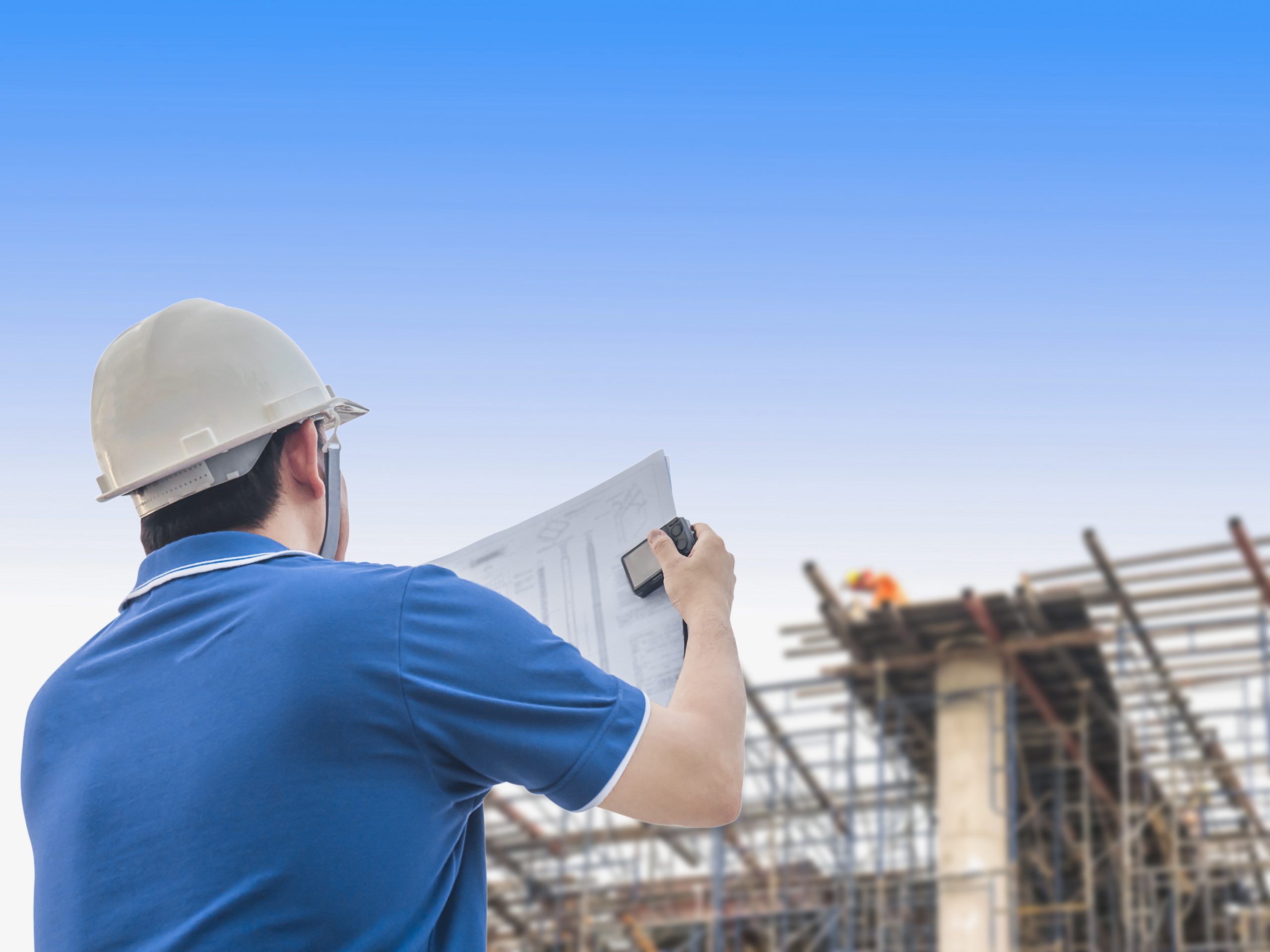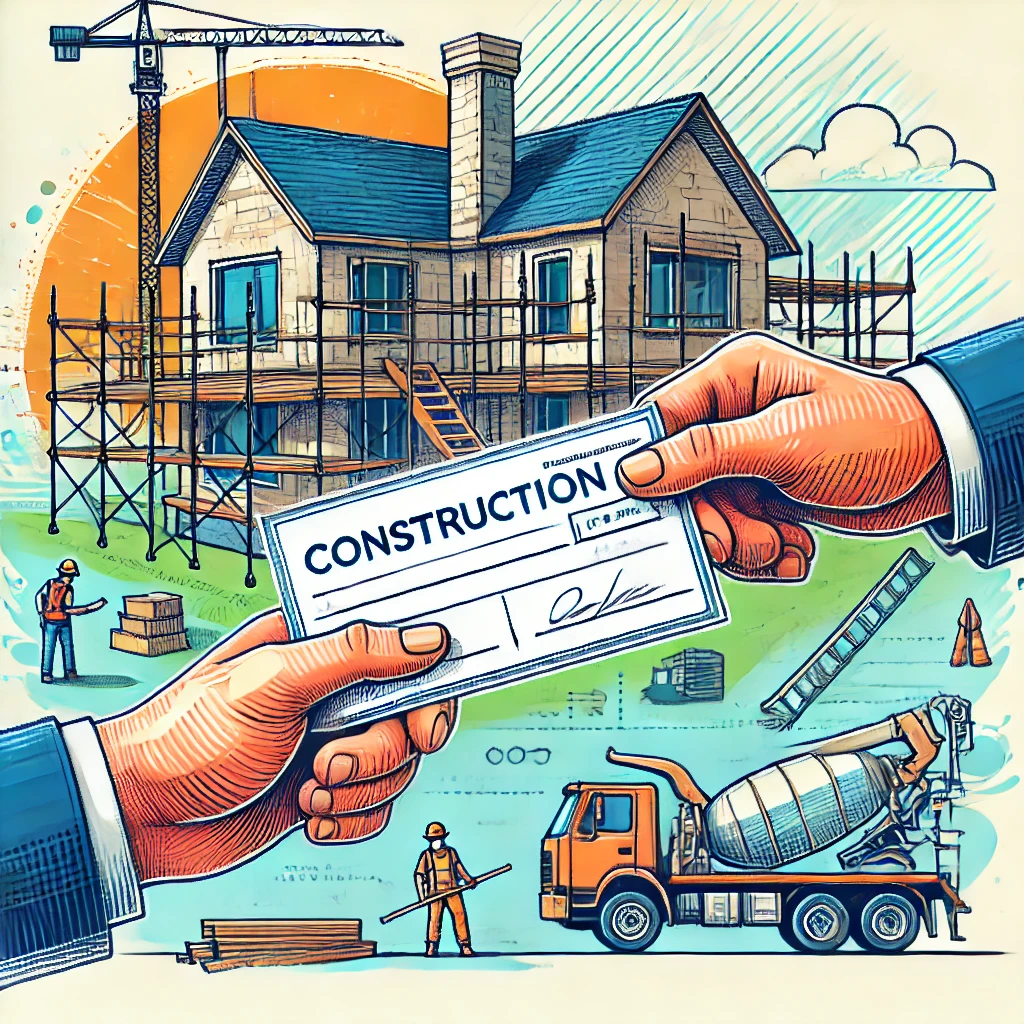Construction Loans

Whether you’re planning to construct your ideal home or expand your investment portfolio, construction loans offer the flexibility and funding to make your vision a reality.
At Lagos Financial, we specialise in helping property investors in Bondi Junction and Launceston navigate the complexities of construction loans, ensuring a seamless process from start to finish.

What is a Construction Loan?
A construction loan is a short-term loan designed to finance the building of a new property or significant renovations. Unlike traditional home loans, funds are released in stages as construction progresses, and interest-only repayments are typically made during the build phase.
Key Benefits:
- Customise your property to meet your needs.
- Pay interest only on the amount drawn during construction.
- Access tailored solutions designed for property investors.

How Do Construction Loans Work?
Construction loans operate through progressive drawdowns, meaning funds are released at specific stages of the construction process.
Typical Stages of a Build:
Contract & Deposit
Secure contracts and pay initial deposits.
Slab Down
Lay the foundation, including concrete and plumbing.
Frame Stage
Build the property’s framework, including roofing and brickwork.
Lock-Up Stage
Install windows, doors, and external walls.
Fit-Out Stage
Complete internal fittings such as plumbing and electrical work.
Completion
Finalise construction, including painting and cleaning.
During each stage, your builder submits invoices, and lenders conduct inspections before disbursing payments. This ensures quality and accountability throughout the process.
For a detailed overview, check our guide: The Stages of Building a Home.

How Do Lenders Charge Interest on Construction Loans?
Interest on construction loans is calculated on the drawn amount rather than the total loan. For instance, if your approved loan is $400,000 and you’ve drawn $150,000, you’ll only pay interest on the $150,000.
Transition to Principal & Interest:
Once construction is complete, the loan transitions to a standard mortgage with principal and interest repayments, ensuring a smooth financial shift.
Why Are Interest Rates Higher on Construction Loans?
Construction loans often come with higher interest rates due to:
Increased risk for lenders as the property is incomplete during the build.
Costs associated with staged valuations and inspections.
The need for greater flexibility in loan-to-value ratios (LVRs).
Learn more about Managing Construction Loan Costs to make informed financial decisions.
Pros and Cons of Construction Loans
Interest on construction loans is calculated on the drawn amount rather than the total loan. For instance, if your approved loan is $400,000 and you’ve drawn $150,000, you’ll only pay interest on the $150,000.
Pros
- Pay-as-you-build: Interest is only charged on drawn funds.
- Customisation: Create a property tailored to your needs.
- Grants & Concessions: Potential savings on stamp duty and access to government grants.
Cons
- Higher Interest Rates: Reflecting increased risk for lenders.
- Uncertainties in Construction: Delays and budget overruns can occur.
- Higher Costs: Long-term interest costs may be higher due to interest-only repayments during construction.
Check out our Comprehensive Construction Loan Comparison Guide for an in-depth analysis.
What Happens Once Construction is Completed?
Upon completion, your loan transitions into a traditional mortgage. Here’s what to expect:
Higher Repayments
Principal and interest payments begin, increasing your monthly repayments.
Loan Restructure Options
Discuss refinancing or consolidating with your lender to optimise repayment terms.
Explore our Refinancing Strategies for Construction Loans to make the most of your investment.
Ready to Get Started?
Lagos Financial is here to simplify the journey of securing a construction loan. Whether you’re building your dream home or an investment property, we’ll guide you every step of the way.
FAQs About Construction Loans
What documents are required to apply for a construction loan?
To apply for a construction loan, you’ll need detailed construction plans, a signed building contract, proof of land ownership, financial statements, and proof of income.
What credit score do I need to qualify for a construction loan?
Lenders often have minimum credit score requirements, which can vary. A good credit score improves your chances of approval and may help you secure better interest rates.
How does the drawdown process work in a construction loan?
The loan amount is released in stages during the construction process, with funds disbursed as milestones are completed. You’ll only pay interest on the amount drawn down at any given time.
What should I do if my construction project exceeds the initial budget?
If costs go over budget, speak to your lender immediately to explore options. Planning for contingencies in advance can also help mitigate financial stress.
How can I plan for potential cost overruns in my construction loan?
Create a realistic budget with a buffer for unexpected expenses, and maintain open communication with your builder and lender throughout the project.
How are interest rates determined for construction loans?
Interest rates are generally higher for construction loans due to the increased risk for lenders. Factors include your credit profile, lender policies, and current market conditions.
Can I lock in an interest rate for my construction loan, and how does it work?
Some lenders offer fixed-rate options for construction loans, allowing you to lock in a rate during the build period. Speak with your lender to understand your options.
What are some common unexpected expenses in construction projects?
Unforeseen costs may include material price increases, weather-related delays, or additional labour expenses. A contingency fund can help cover these unexpected costs.
What steps do I need to follow to access funds during the construction phase?
Submit progress invoices from your builder to your lender. The lender may inspect the completed work before releasing funds to ensure compliance with the approved plan.
What are the best practices for aligning expectations with builders regarding timelines and quality?
Regular communication, a clear contract, and agreed milestones with your builder can help manage expectations and ensure project success.
